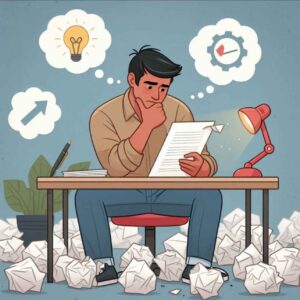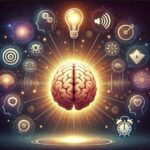
Growth doesn’t happen in a straight line; it takes time, learning, and a little self-reflection. One of the most powerful yet often overlooked tools for personal development is introspection. It’s the act of stepping back and looking at your experiences, choices, and behaviors to gain valuable insights.
Think of self-reflection as your mirror. It gives you the chance to see yourself—not just how others see you, but how you truly see yourself. This practice can help you recognize patterns in your life, identify areas of improvement, and celebrate your successes, no matter how small.
In this article, we’ll explore why self-reflection is key to personal growth, how it can unlock your potential, and share real-life examples of people who have harnessed the power of reflection to become the best versions of themselves.
Helps You Understand Yourself Better
Self-reflection is the gateway to self-awareness. When you regularly take time to reflect, you start to understand your thoughts, emotions, and actions more clearly. You begin to identify what triggers certain behaviors and why you react the way you do. With this awareness, you can make more intentional decisions moving forward.
Consider Maya Angelou, a celebrated poet and civil rights activist. In her life, Angelou faced many challenges, but she was known for her deep self-reflection. She often wrote about her struggles and triumphs, which helped her gain clarity and understanding. This self-awareness gave her the courage to keep going, no matter the obstacles in her way.

Tip: Try setting aside 10-15 minutes each day to reflect on your day. What went well? What didn’t? How did you feel during different moments? These small moments of reflection can give you deep insights into your behavior and emotions.
Allows You to Learn from Mistakes
When we fail, it can be easy to brush it off and move on. But failure is one of the best teachers, especially when combined with self-reflection. Instead of letting mistakes define you, use them as stepping stones for growth. Reflecting on your missteps allows you to learn from them and avoid repeating the same errors.

Take Thomas Edison, the inventor of the lightbulb. Edison faced countless failures before he succeeded. He once said, “I have not failed. I’ve just found 10,000 ways that won’t work.” This mindset came from constant reflection on what went wrong and adjusting his approach until he found what worked.
Tip: After a mistake or failure, take a step back and reflect. What did you learn from the experience? How can you approach it differently next time? The more you reflect on your mistakes, the less likely you are to repeat them.
Helps You Set Clearer Goals
Self-reflection is a powerful tool for goal setting. When you reflect on where you are and where you want to go, it helps you align your actions with your true desires. You can pinpoint what you truly want out of life and set goals that are meaningful to you, not just what others expect.
Oprah Winfrey, a media mogul and philanthropist, has always emphasized the importance of self-reflection in goal-setting. She often reflects on her life’s purpose and how she can align her daily actions with her bigger vision. By constantly reflecting, she stays focused on her true goals, whether that’s helping others or building her empire.

Tip: Take some time to reflect on your personal and professional goals. Are they truly in line with your passions and values? Do they reflect who you are at your core? Regular self-reflection can help you make sure you’re on the right path.
Reduces Stress and Increases Mindfulness
Self-reflection doesn’t only help you grow—it can also improve your mental well-being. By doing this, you can reduce the mental clutter that causes stress. It helps you gain perspective on situations and stay grounded in the present moment, leading to greater mindfulness and calm.
Arianna Huffington, founder of The Huffington Post, has been a vocal advocate for mindfulness and the power of self-reflection. She credits her success to regularly taking time for herself to reflect, meditate, and unwind. This practice helps her maintain clarity and stay focused, despite her demanding career.

Tip: Incorporate mindfulness practices into your self-reflection. This could mean taking a few deep breaths, journaling your thoughts, or simply sitting in silence for a few minutes. Taking a moment to reflect mindfully can help you feel less stressed and more at peace.
Strengthens Your Decision-Making
Self-reflection enhances your decision-making abilities. When you regularly reflect on your choices, you start to notice patterns in your thinking and behavior. This awareness helps you make more informed, thoughtful decisions, rather than acting impulsively or repeating past mistakes.
Steve Jobs, co-founder of Apple, was known for taking long walks and reflecting on decisions before making them. His ability to reflect on his ideas and choices led to groundbreaking innovations, as he always made sure that his decisions aligned with his larger vision.

Tip: Before making big decisions, take a moment to reflect on your options. What are the possible outcomes? How will your choice align with your values and long-term goals? This moment of reflection can lead to better, more thoughtful decisions.
Self-reflection isn’t just an occasional activity—it’s a daily habit that fuels your personal growth. It allows you to understand yourself better, learn from mistakes, set clearer goals, and reduce stress. By making it a part of your routine, you open the door to endless growth opportunities and a deeper connection with yourself. So, take a moment each day to pause, reflect, and move forward with intention. It’s the key to unlocking your full potential.
I hope you found this article informative and gained new insights. If you have any questions or comments, feel free to leave them below. Thanks for reading, and I’ll see you at the next one!



